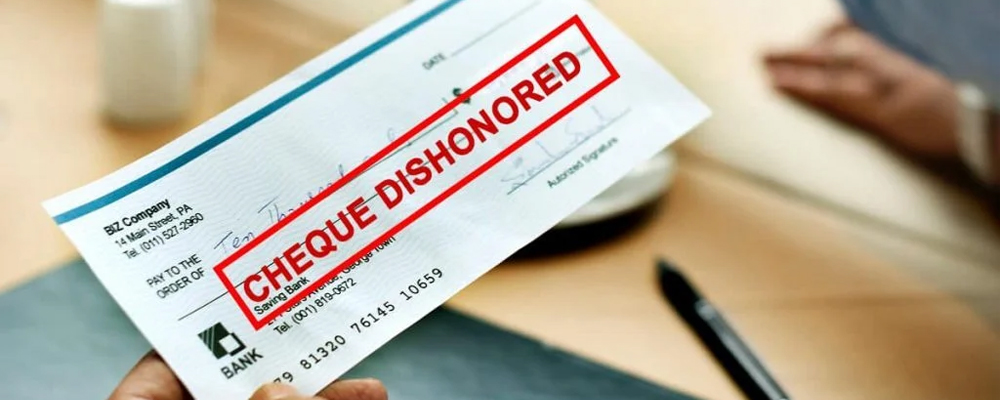Section 138 of the Negotiable Instruments Act, 1881 is a legal provision that is given in the Indian that covers the dishonour of cheques. The section provides for a criminal remedy in case of dishonour of cheques due to insufficient funds in the account of the drawer.
Under Section 138 of the Negotiable Instruments Act, the following are the key steps in the process of a cheque bounce case in India:
Notice of Demand
The first step is to issue a notice of demand to the drawer of the cheque within 30 days of the receipt of the memo of dishonour from the bank. The notice should contain the details of the cheque, the reason for its dishonour, and a demand for payment of the cheque amount within 15 days from the receipt of the notice.
Need A Legal Advice
The internet is not a lawyer and neither are you. Talk to a real lawyer about your legal issue

Response to the Notice
If the drawer of the cheque fails to make payment within the stipulated period of 15 days, the payee can file a complaint under Section 138 of the NI Act in the appropriate court. However, if the drawer makes payment within the stipulated period, no further action can be taken against them.
Filing of Complaint
The complaint under Section 138 of the NI Act must be filed in the court having jurisdiction over the place where the cheque was dishonoured or where the bank that dishonoured the cheque is located. The complaint must contain the details of the cheque, the reason for its dishonour, the notice of demand, and other relevant details.
Summoning the Accused
Once the complaint is filed, the court will issue summons to the accused to appear before it. The accused will have to appear in person or through a lawyer.
Trial: At the trial, the complainant will have to prove that the cheque was issued for a legally enforceable debt or liability, that it was presented to the bank within the stipulated period of three months, and that it was dishonoured due to insufficient funds in the account of the drawer. The burden of proof is on the complainant.
Verdict: If the court is satisfied that the complainant has proved his case beyond a reasonable doubt, it can convict the accused and sentence him to imprisonment for a term that may extend to two years or impose a fine that may extend to twice the amount of the cheque or both. The court may also direct the drawer to pay the cheque amount to the complainant.
Appeal: If the accused is dissatisfied with the verdict of the trial court, he can appeal against it in the higher court within 30 days of the date of the order.
In conclusion, Section 138 of the Negotiable Instruments Act provides a legal remedy to the payee in case of dishonour of cheques due to insufficient funds. The process involves issuing a notice of demand, filing a complaint in the appropriate court, summoning the accused, trial, and verdict. The process can be lengthy and time-consuming, but it provides an effective remedy to the payee.
To get your issue resolved you can contact to Lead India where you can ask the free question, talk to best of lawyer and hire best advocate in your city you can also get connected through of official website





 Talk to a Lawyer
Talk to a Lawyer